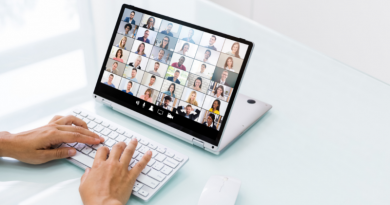Nature’s problem solvers should be on your hire list
Recently, training in diversity, inclusion and equality issues has gained a lot of attention, with organisations realising just how important it is to have an inclusive workforce. Discrimination within the workplace can lead to missed opportunities when people ignore potential or talent due to a person’s specific characteristic. This can also result in legal costs, a negative public image and having to pay compensation to the person who has suffered the discrimination. Workplace discrimination can make people feel undervalued, impacting on job satisfaction and job performance
As humans we are a diverse collection of differences, and there is no one typical person. We need to change a mindset where we begin to normalise differences and celebrate them.
“Over 1 billion people are estimated to live with some form of disability. This corresponds to about 15% of the world’s population, with up to 190 million (3.8%) people aged 15 years and older having significant difficulties in functioning, often requiring healthcare services.” -The World Health Organisation
Disabled people are mothers, fathers, friends and loved ones. So why do we see them so differently when it comes to the workplace? There are still stigmas around employing someone with a disability, and a lot of companies can be less than welcoming. Why are non-abled bodied people within the workplace still rare in 2021?
People with disabilities need to be recognised, celebrated, and seen. They need to be within a welcoming community and workforce just as able-bodied people are. If we don’t see people with a disability in the workforce how can we visualise an inclusive future? Those with a disability can have new and fresh ideas, motivation, and inspiration to carry others along when they need it. By acknowledging the barriers, a disabled person may have faced and how they have overcome them with support. A disabled person can be a role model within a workforce for others to look up to.
Would you tell your potential new employer everything?
But what if the deciding factor to getting the job was your perceived difference? Candidates do not have to disclose to employers the nature of their disability but avoiding doing so can cause issues long term, such as lack of adjustments being made for your needs. We do need to remove the worry and concern about disclosing the nature of a person’s disability, so that employers get the opportunity to provide support in the correct manner. As a society we need to be making these changes so everyone has a fair chance and the right access to pursue their career of choice.
As humans we all have our limitations. There are vital safeguards for us all when it comes to the interview process. Not every job can be tailored to suit an individual’s needs. There are risk assessments that need to be put in place to keep everyone safe, therefore it is important that disabled people communicate their needs to an employer. There are reasons why people don’t tell their possible future boss of a barrier/disability. Mainly due to the thought that it could possibly put their application at risk. However, without having an open honest conversation about a candidate’s circumstances, an employer can not fully understand how to assist the potential employee.
When candidates come to look for a new job everyone looks for different things in potential employers. High up on that list are those who understand and communicate with their staff members. Candidates no longer want to feel like a number on the payroll, they want to be celebrated for their individuality regardless of ability or disability and to feel appreciated and heard.
Those with a disability are often natural problem solvers. They live in a world that was designed without them in mind. The world never gave them the option not to be, they are under-recognised and woefully underutilised. The barriers they have had to overcome, the skills and knowledge they have developed along with their perspective are invaluable. They do more than tick a diversity box.
As an employer, many reasonable adjustments involve little or no cost. They could start by making adaptations to a disabled person’s working pattern – part-time hours may better suit the candidate, providing support through a mentor or training, writing all communication in plain English, making alterations to premises or allowing them to work on the ground floor for accessibility or the modifying of some equipment, such as office chairs and keyboards.
The population is ageing, and the number of disabled people is increasing. Smart companies will realise that a lot of people with disabilities are their consumer base and should reflect this in their workplace. Becoming a disability confident employer makes business sense. Disabled people are hugely diverse, have different ideas, thought processes and experiences. Companies who realise the talent that disabled people have, who recognise the qualities their companies need and how disabled people can contribute gives them a competitive edge that is key for all businesses.
Originally posted 2021-11-09 15:17:09.
- Nature’s problem solvers should be on your hire list - January 24, 2026
- The impact of a pandemic to learning - December 6, 2025
- A journey through equality, diversity and inclusion - October 27, 2025






